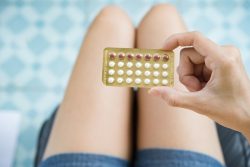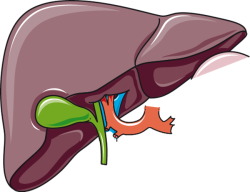I just finished a two-week research dive program at the Scripps Institute of Oceanography, which happened to be poorly timed: I started my period a few days into the program. I pulled the instructor aside and informed him of my upcoming menstrual flow, and he assured me it would not be a problem at all.
As far as sharks go, he was right. A woman’s period should not pose a problem since women lose a very small amount of blood during this time and, according to the Diver’s Alert Network (DAN), many shark species are not attracted to the blood anyhow.
As far as Decompression Illness, or DCI, goes, let’s just say I was fortunate.
Decompression Illness may be caused by Decompression Sickness (DCS) which results from nitrogen bubbles that remain in the tissues of the body after one has been in a high-pressure environment, like scuba diving in the ocean. The amount of nitrogen may build up if divers spend too much time at certain depths, scuba dive for too long, or ascend to the surface too quickly.
DCI may also be due to Arterial Gas Embolism (AGE), or gas bubbles in the bloodstream, which have the potential to block the flow of blood to the heart.
The impact DCI has on the body varies from joint pain to death, so divers make sure to reduce the risk of DCI by tracking nitrogen absorption and ascending to the surface slowly (this permits off-gassing, or releasing, of nitrogen bubbles).
Turns out, a woman is more susceptible to DCS during menstruation if she uses oral contraceptive pills, and I take oral contraceptives.
DAN and the British Hyperbaric Association looked at the statistics for 956 female divers with DCI and found that 38% of the women were menstruating when the incident occurred. Of those women, 85% were taking oral contraceptives. Though the data is inconclusive, it suggests that female divers taking the pill have an increased chance of DCI, and DAN suggests oral contraceptive pill-poppers partake in more conservative dives during menstruation.
Luckily, we were taught safe dive practices, and dove to conservative depths within reasonable bottom times. However, looking further into the subject brought to light something I should have known: Most of the health information provided for women divers are based on data from healthy, young men or animals, which is not necessarily adequate.
Dive tables that calculate the nitrogen absorbed by the body are based on the physique of male divers, who have, on average, a lower percentage of body fat than women. Fatty tissues absorb nitrogen at a slower rate than other parts of the body, such as the lungs and abdominal organs, which means they off-gas nitrogen more slowly as well.
Though it’s difficult to say whether these differences significantly increase a woman’s susceptibility to DCI, it does demonstrate how the medicine of diving has been primarily focused on men’s health in particular. Just like the ocean itself, the impact of scuba diving on women’s health is virtually uncharted territory.












Stumbled on this late, and I have previously read DAN articles on this subject.
I used to dive much more often than I do now. I definitely urge conservatism in diving profiles when you are menstruating, based on this research. Hormones around Aunt Flo’s appearance also tend to make me more prone to seasickness which is not dangerous in itself, but can be a distraction from taking all necessary steps and being attentive when diving.